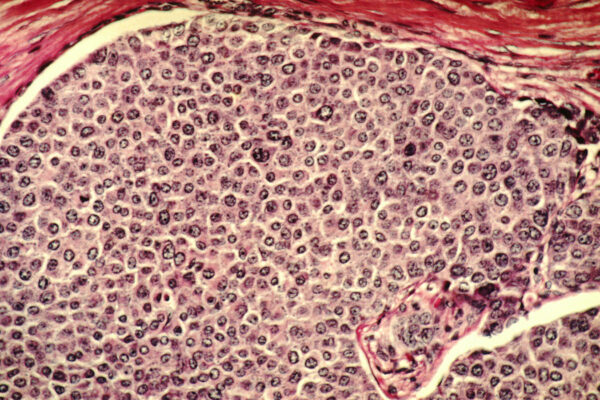
Mutations to the BRCA1 and BRCA2 genes significantly increase the chances of breast and ovarian cancers, and a test can assess a person’s risk from those variants. But those genes are just two of the many known genetic drivers of cancer. The FDA has granted marketing authorization to an Invitae test that identifies the BRCA gene variants as well as dozens of others that can raise an individual’s risk of developing certain cancers.
The Invitae Common Hereditary Cancers Panel assesses DNA extracted from a blood sample, using next-generation sequencing to assess 47 genes in a single test. The FDA said Invitae’s test is the first of its kind to receive marketing authorization, blazing a regulatory trail for future cancer tests.
“Today’s action can provide an important public health tool that offers individuals more information about their health, including possible predisposition for certain cancers, which can help guide physicians to provide appropriate monitoring and potential therapy, based on discovered variants,” Jeff Shuren, director of the FDA’s Center for Devices and Radiological Health, said in Friday’s announcement of the regulatory decision.
The new test of San Francisco-based Invitae is a prescription product. A blood sample is collected at a site such as a doctor’s office, and then sent to a lab for testing. In addition to BRCA1 and BRCA2, other genes identified in the test include MLH1, MSH2, MSH6, PMS2 and EPCAM, which are associated with Lynch syndrome, an inherited disorder that increases the risk of colorectal cancer; CDH1, which is associated with hereditary diffuse gastric cancer and lobular breast cancer; and STK11, associated with Peutz-Jeghers syndrome, an inherited condition that raises the risk of cancers of the gastrointestinal tract.
In Invitae’s tests to validate the performance of its Common Hereditary Cancers Panel, the company evaluated more than 9,000 clinical samples. Results showed greater than 99% accuracy for all tested types of variants. Even so, the FDA cautions that like any tests, there is a risk of false positive and false negative results, as well as possible misunderstanding of test results. The FDA said that the new Invitae test is not intended for identifying or evaluating all known genes associated with a predisposition to cancer. In those already diagnosed with cancer, the FDA said Invitae’s test can help identify potentially cancer-associated hereditary variants.
The new Invitae test was reviewed under the de novo premarket review pathway. The FDA said authorization for the new test creates a new regulatory classification. Other tests of the same type and the same intended use may receive regulatory clearance through the FDA’s 510(k) regulatory pathway, as long as they can show they are substantially equivalent to the Invitae cancer test.
The regulatory nod for Invitae’s new cancer test is a welcome bright spot for the company, which late last month received a New York Stock Exchange warning that its stock price, trading below $1 for 30 consecutive days, was not compliant with listing requirements. Invitae said at the time that it intends to bring the company into compliance with listing standards within the six-month period granted by the exchange. Invitae’s opening stock price Monday was 78 cents per share, up from 60 cents at market close Friday.
Public domain image by the National Cancer Institute










